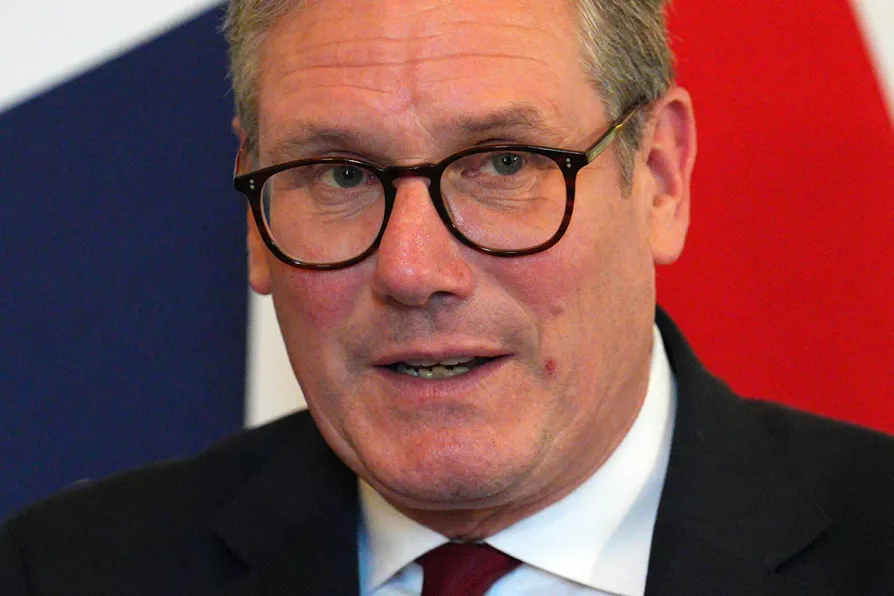
 Prime Minister Sir Keir Starmer during a meeting with King Abdullah II bin Al-Hussein of Jordan to 10 Downing Street, London, July 23, 2024
Prime Minister Sir Keir Starmer during a meeting with King Abdullah II bin Al-Hussein of Jordan to 10 Downing Street, London, July 23, 2024
KEIR STARMER’S vengeance was swift and extreme, suspending seven Labour MPs on Tuesday evening for voting to end the tax credit and benefit cap on families with three or more children.
The dissidents have been suspended from the Parliamentary Labour Party for six months, after which time their penalty will be reviewed.
Yet only a couple of years ago, they would have been joined in the Commons lobby by most of today’s Labour Cabinet, including Wes Streeting, Lisa Nandy, Jo Stevens, Jonathan Reynolds, Steve Reed, Louise Haigh and Keir Starmer himself.
Indeed, Deputy Prime Minister Angela Rayner used to denounce the Tory ban on additional child-related benefits for larger families as “obscene” and “inhumane.”
Yet, last Tuesday, she and her Cabinet colleagues were among the 362 Labour MPs who defeated the SNP amendment calling for the cap to be scrapped immediately. Forty-two Labour MPs abstained, as the “Magnificent Seven” displayed the courage of their convictions.
Scrapping the cap would lift up to half a million children out of poverty. This would cost the Treasury around £3 billion a year.
Should this sound prohibitive, central government spending this year — excluding capital investment — will amount to some £430bn.
Most of the 363 MPs who opposed a tiny increase in this sum will be trooping into the government lobby to add up to £13bn a year to reach the hallowed goal of spending 2.5 per cent of Britain’s GDP on military rearmament.
In Starmer’s brave new Britain, building four nuclear-armed Dreadnought submarines and tossing another 100 nuclear warheads onto the stockpile trumps a non-nuclear strike on child poverty.
The summary retribution dished out to seven of his 411 MPs has been widely reported as a sign of strength.
It was, rather, a display of insecurity and intolerance. Past Labour prime ministers from Clement Attlee and Harold Wilson to James Callaghan and Tony Blair would not have resorted to such a drastic measure on such an issue and in such circumstances, even without a massive majority behind them. To react so viciously to a back-bench rebellion points to the grim authoritarianism at the heart of the Starmer project.
Now, the “Magnificent Seven” have to decide their future course of action. Siren voices will urge them to declare their permanent independence from the Labour Party, to form yet another “party of the left.”
This would risk weakening their relations with like-minded comrades and MPs alarmed at Starmer’s over-reach.
It might also hand some in the trade unions an excuse for not closing ranks around those few Labour MPs who deserve their wholehearted support.
Almost all unions demand the lifting of the two-child benefit cap, and Starmer should be warned that making an example of MPs who stand up for union policy will poison industrial relations from the off.
Yet it would be a missed opportunity too should we not now have seven extra voices and votes at Westminster for social justice, public ownership and peace.
The MPs are like prisoners who have been released on licence, except that their behaviour on the outside will decide whether they will be allowed back in.
But why would they want to return to their cells?
Speaking and voting in harmony with their values and consciences inside Parliament, working with left independents and third-party MPs on issues of agreement but also co-ordinating this with helping to build — and even to lead — a mass movement outside. We have missed a co-ordinated, outspoken left at Westminster.
The Magnificent Seven now have months to decide which road to take, together and with others.
Did they join the Labour Party to fight for the socialist transformation of society? How best can they stay true to that great and noble cause — the liberation of humanity?














